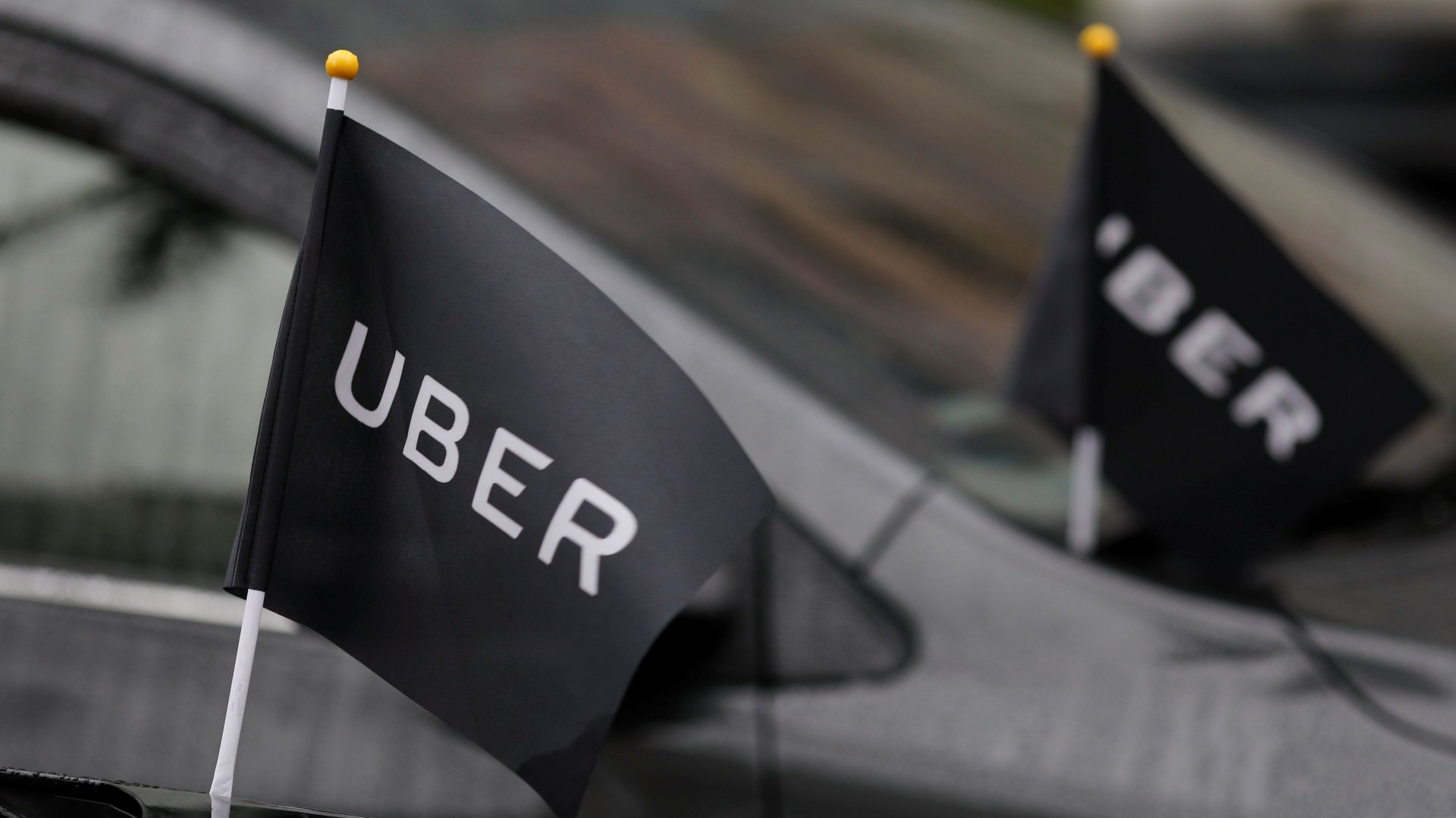Uber and Bolt are set to face expensive ride-hailing regulation in Africa’s largest city
Ride-hailing companies operating in Lagos will soon face a new set of regulatory road bumps.


Ride-hailing companies operating in Lagos will soon face a new set of regulatory road bumps.
Back in 2016, the Lagos state government first attempted to regulate ride-hailing startups by requiring taxi companies register each operator with the state at the cost of $320 per car. But, under a new administration, the government has changed tack.
The state is set to introduce a new range of regulatory guidelines for ride-hailing including annually renewable licensing fees and a service tax on “each transaction paid by passengers.” Major ride-hailing companies like Bolt and Uber (Lagos is home to a majority of its over 9,000 active drivers across Nigeria) will be key targets of the proposed rules. The regulations are expected to come into full force on Aug. 20.
The proposal is the latest example of Lagos state’s plans to regulate companies innovating in its inefficient transport system.
Take motorcycle startups, which launched on the premise of offering flexible and cheaper transport modes to navigate Lagos’ notorious traffic jams and congestion. After a year of rapid growth fueled by millions of dollars in investment but hampered by sustained harassment from state-backed transport unions, the government upended their businesses with a ban on commercial motorcycles in major residential and business hubs, citing safety concerns. The impact of that ban exposed the lack of options for commuters and resulted in pockets of protests by the startups’ rider-partners.
The state’s new ride-hailing regulations are already drawing unwelcome reactions from industry stakeholders. Uber and Bolt Drivers have kicked against the move, while, for its part, Uber has described the new regulations as “inconsistent and unclear.”
Industry insiders also suggest that the new regulation was shaped with minimal consultation with ride-hailing companies or drivers. When contacted by Quartz Africa, inDriver—the fast-expanding Russian ride-hailing company that operates in cities across the continent, including Lagos—appeared unaware of the new regulations.

Market opportunity
Despite the threat of regulatory concerns, there’s an obvious reason ride-hailing services aim to dominate in Lagos: the city’s inefficient public transport system woefully fails to meet the needs of its over 20 million residents. While motorcycle startups fill key accessibility gaps and offer more flexibility in the city’s notorious traffic jams, ride-hailing startups hold up the city’s congestion as a typical use-case to support their marketing messaging of adopting ride sharing as an alternative to individual car ownership.
Indeed, during its first two years of operation in Lagos, Uber facilitated over a million trips and recorded a faster growth rate in its first 16 months than it did in London. Uber’s early success has since prompted the emergence of competitors, including Bolt, the Estonian company which has grown to become Uber’s biggest rival across the continent thanks to an expansion strategy focused operating in smaller cities than Uber typically does.
But in the face of new regulation, riders and drivers could yet face the biggest costs. The state’s proposed 10% service tax per ride may be passed on to customers or to drivers, in addition to Uber’s commissions. It also raises some data privacy concerns as the regulation requires the state to have access to ride-hailing companies’ databases, ostensibly to track transactions and service tax payments.
And, while Bolt and Uber which are both heavily-funded billion-dollar tech companies might be able to absorb the proposed licensing costs, the new regulations will also pose a barrier to entry for smaller operators that have struggled for traction.
For instance, homegrown ride-hailing apps like Oga Taxi and AfroCab appear to have fizzled out in the face of Uber and Bolt’s dominance of market share and competition, not just for riders but also for drivers. It’s a fact highlighted in Uber’s IPO filing documents last year which showed that, amid its billion-dollar annual losses, “cost of revenue” (a category which includes incentives paid to drivers) remains its single biggest expense.
Update: Following meetings with ride-hailing startups, the Lagos government has slashed license fees by 20% and has replaced the 10% service tax per ride with a flat fee of 20 naira ($0.05) per ride.
Sign up to the Quartz Africa Weekly Brief here for news and analysis on African business, tech and innovation in your inbox